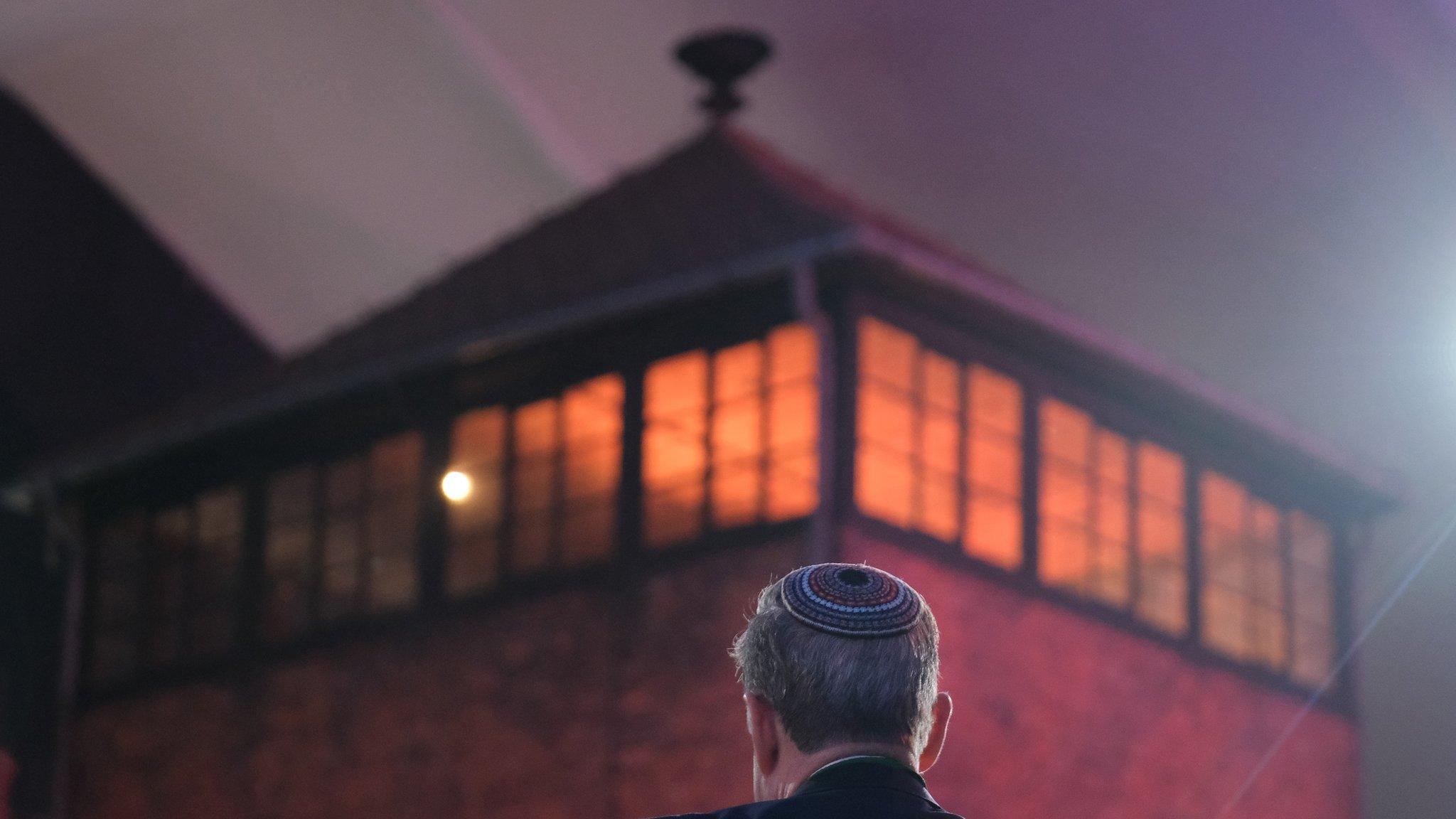Survivors and leaders mark Holocaust Memorial Day
- Published
Survivors and international leaders have honoured the victims of the Holocaust, with memorial events and services held all over the world.
This year, Holocaust Memorial Day coincided with the 75th anniversary of the liberation of Auschwitz-Birkenau death camp, in what was then-Nazi-occupied Poland.
Set up in 1940, Auschwitz was initially intended to house Polish political prisoners - but it eventually became the largest of the Nazis' extermination camps, where Adolf Hitler's plan to kill all Jewish people - the "Final Solution" - was put in to practice.
About 1.1 million people were murdered at the vast, horrifying complex.
Most of the victims were Jews. In addition, more than 70,000 were Poles, 21,000 were Roma, and 15,000 were Soviet prisoners of war, as well as several thousand others.
The camp was liberated by Soviet troops in 1945.
Here are some of the memorial events that took place throughout the day.
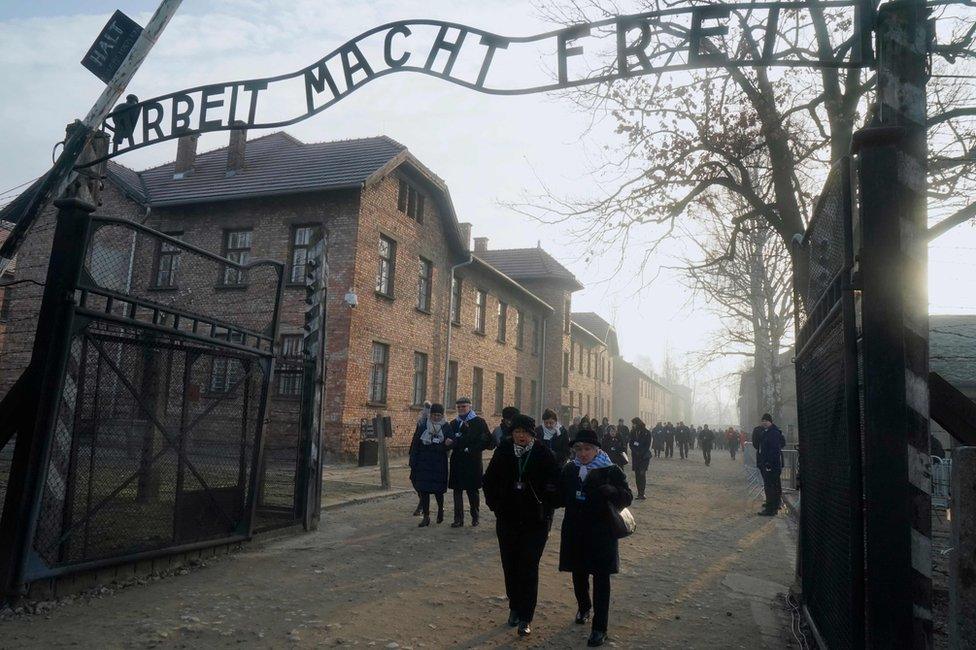
There was a solemn atmosphere at Auschwitz-Birkenau camp, located near the city of Krakow, as survivors revisited the site.
They laid a wreath at a memorial within the camp, which is now a museum, before walking through the grounds.
Here, they walk beneath the infamous gate bearing the inscription, "Arbeit macht frei" - "work sets you free".
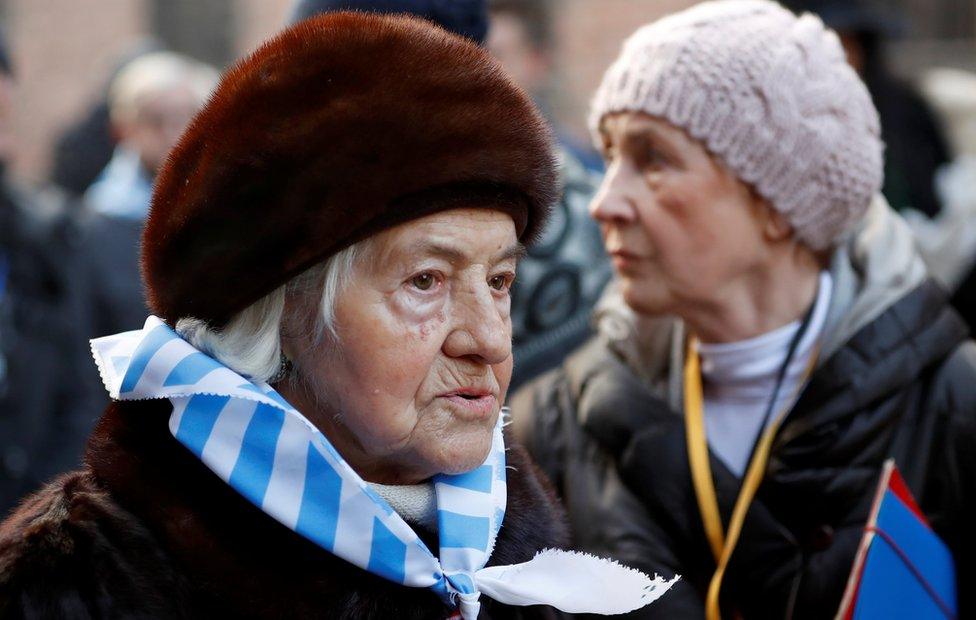
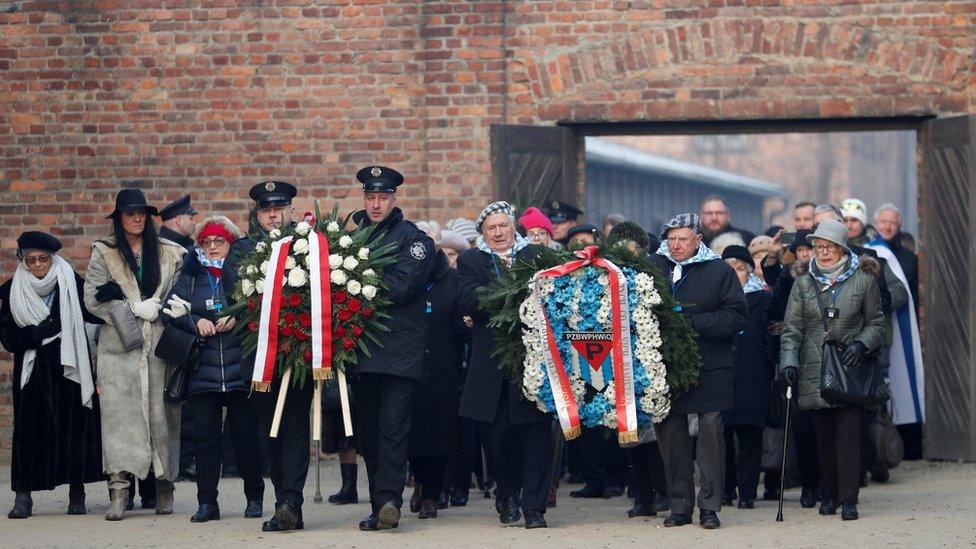
The wreath-laying ceremony was held at the "death wall", where Nazi SS soldiers shot and killed several thousand victims in the camp.
More than 200 survivors visited the memorial for this year's anniversary.
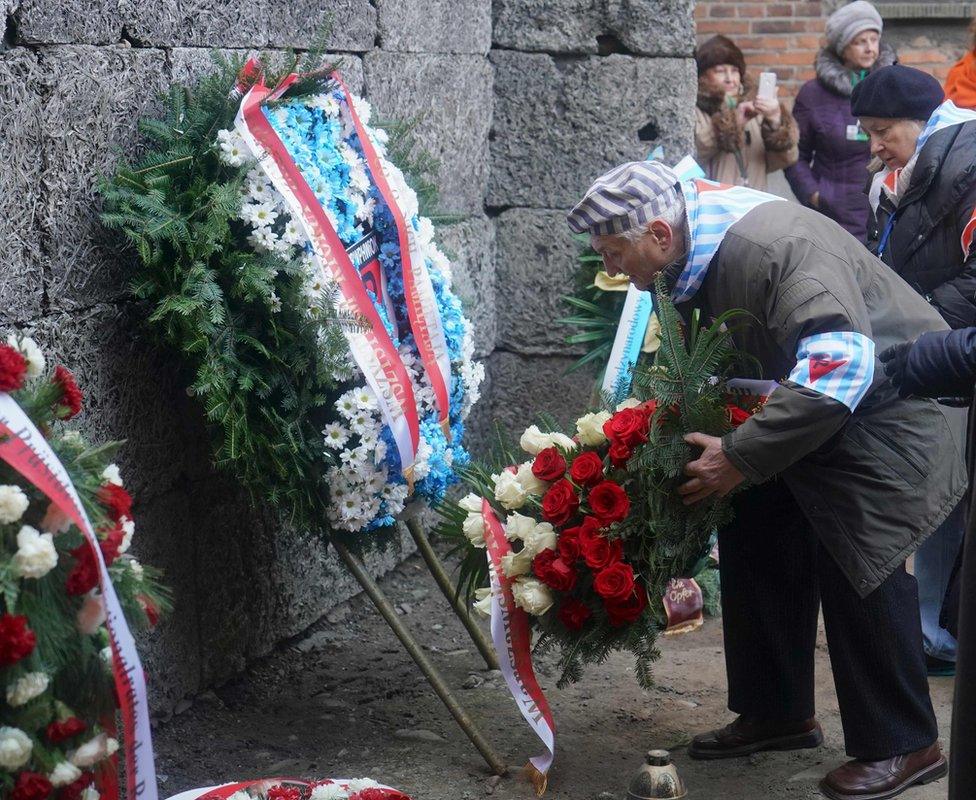
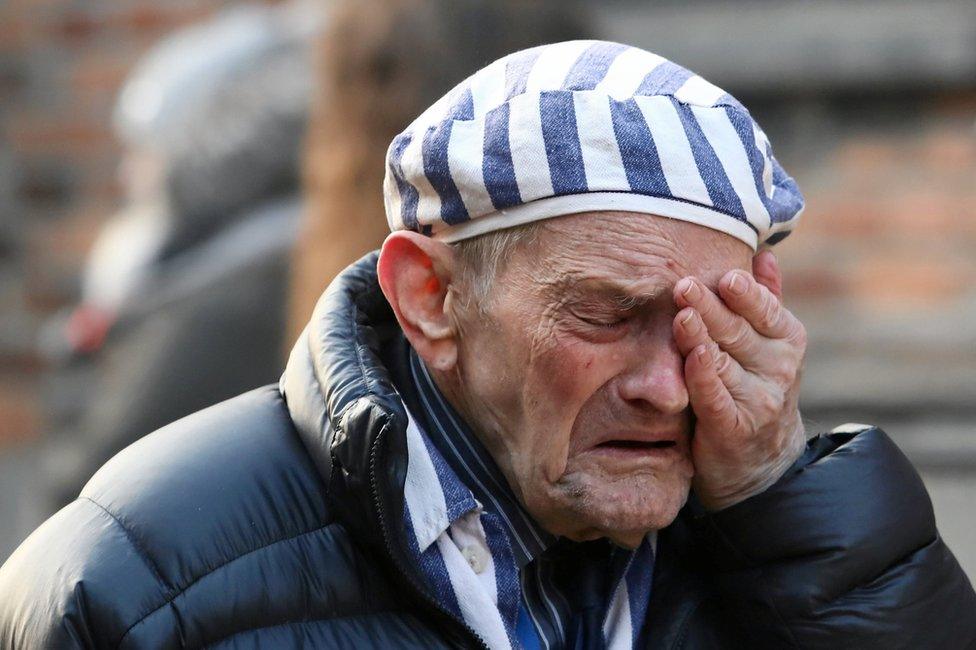
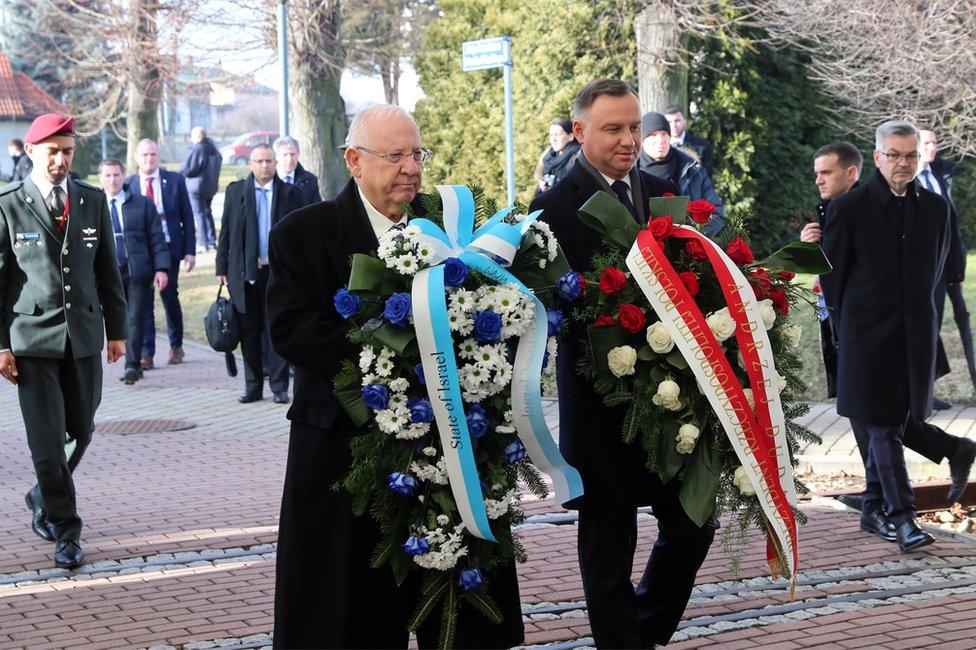
The presidents of Israel and Poland - Reuven Rivlin (above, left) and Andrzej Duda - laid wreaths together in front of the monument to Witold Pilecki.
Pilecki was a Polish anti-Nazi guerrilla who managed to infiltrate Auschwitz in 1940, and told the Western Allies about German atrocities there.
President Duda thanks President Rivlin for his presence, adding: "This presence is a sign of remembrance, it is a visible sign of opposition to inhuman treatment, hatred, against all forms of hate, especially racist hate."
In Yekaterinburg, Russia, attendees took part in a sombre memorial ceremony for Holocaust victims at a synagogue.
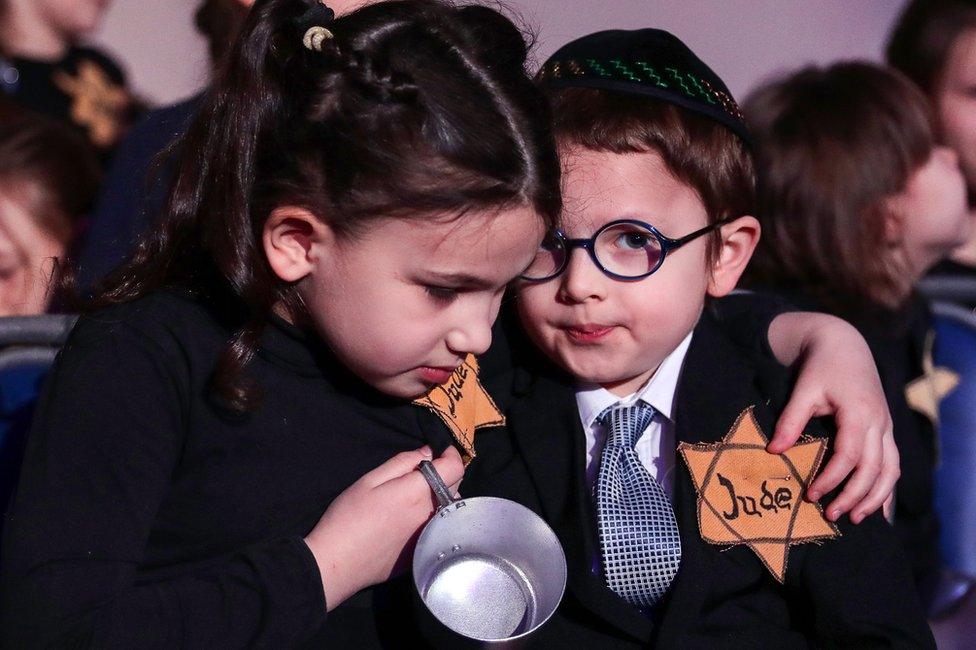
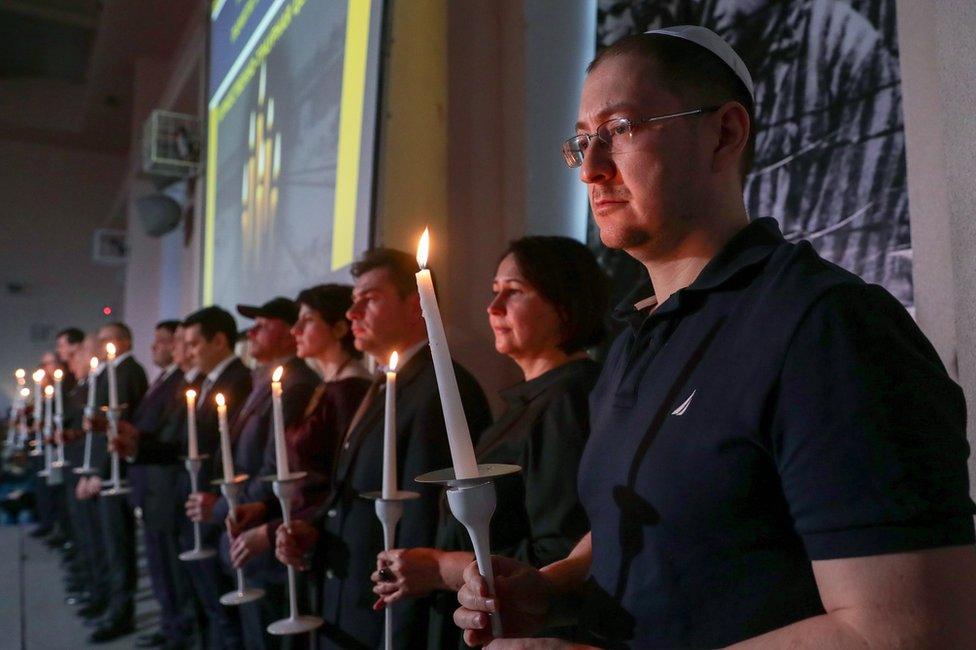
In Amsterdam, Dutch Prime Minister Mark Rutte (below, left) and State Secretary Paul Blokhuis laid a wreath at a remembrance event.
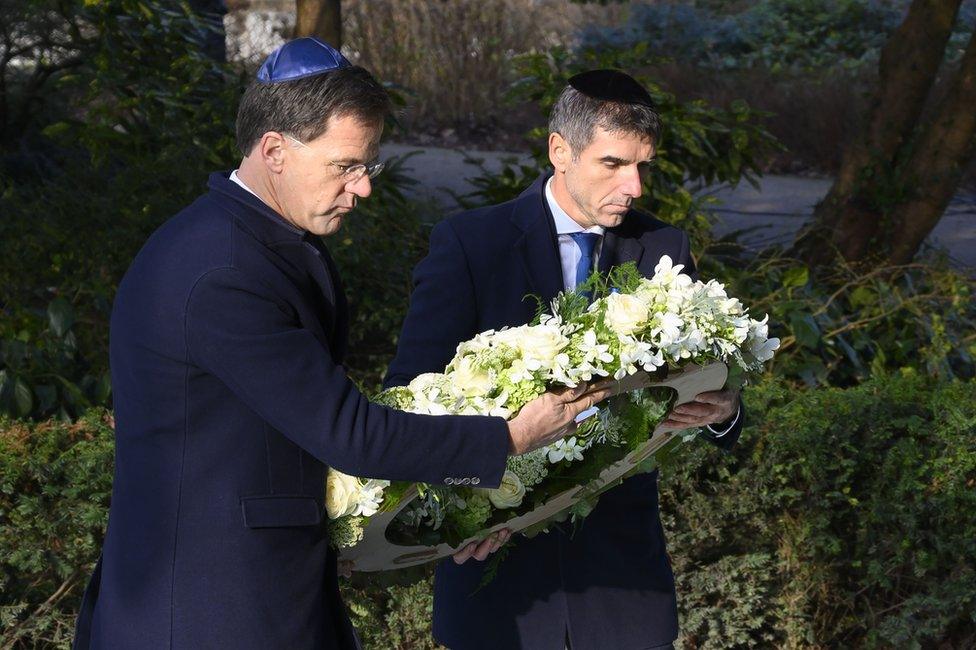
Mr Rutte said that while some Dutch officials resisted during the Nazi occupation, too many simply did as they were told.
"Now the last survivors are still with us, I apologise today in the name of the government for what the authorities did at that time," he said in an address.
Only 38,000 of the 140,000 Jews who lived in the Netherlands survived World War Two.
This was the first time a Dutch prime minister had offered an apology.
In Berlin, chairwoman of the Association for the Memorial to the Murdered Jews of Europe, Lea Rosh, lit candles on one of the concrete steles of the memorial.
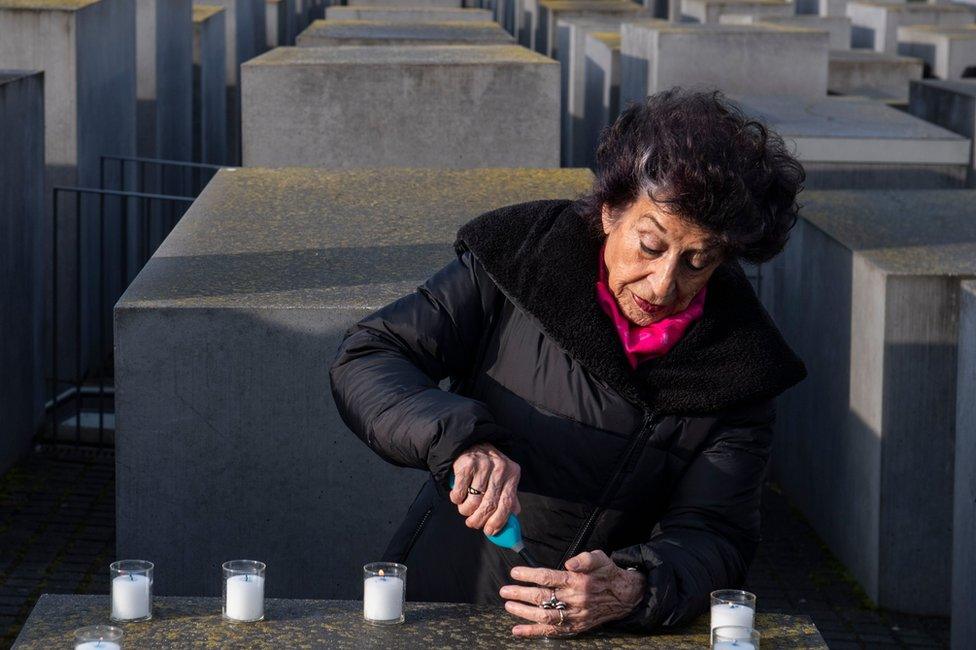
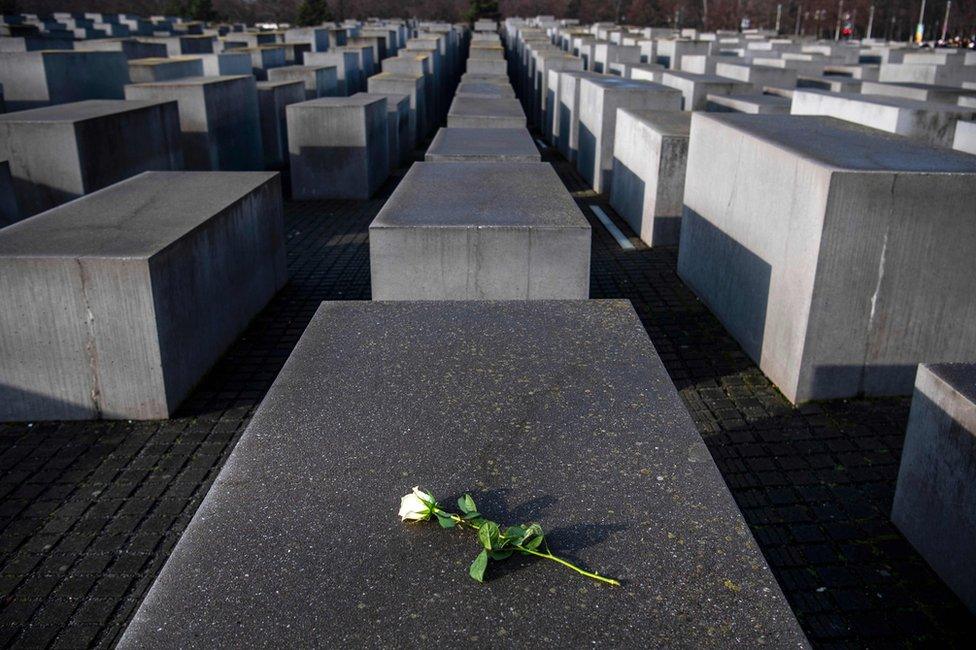
Cellist Luka Sulic, below, performed during the memorial.
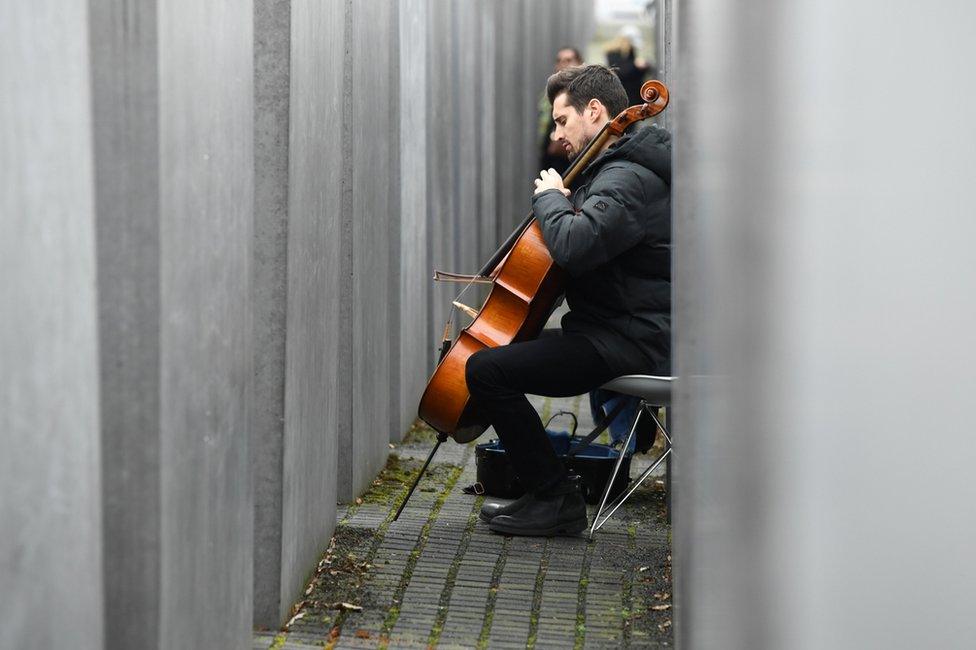
At a service in Budapest, Hungary, attendees visited a wall bearing the names of victims at the Holocaust Memorial Centre.
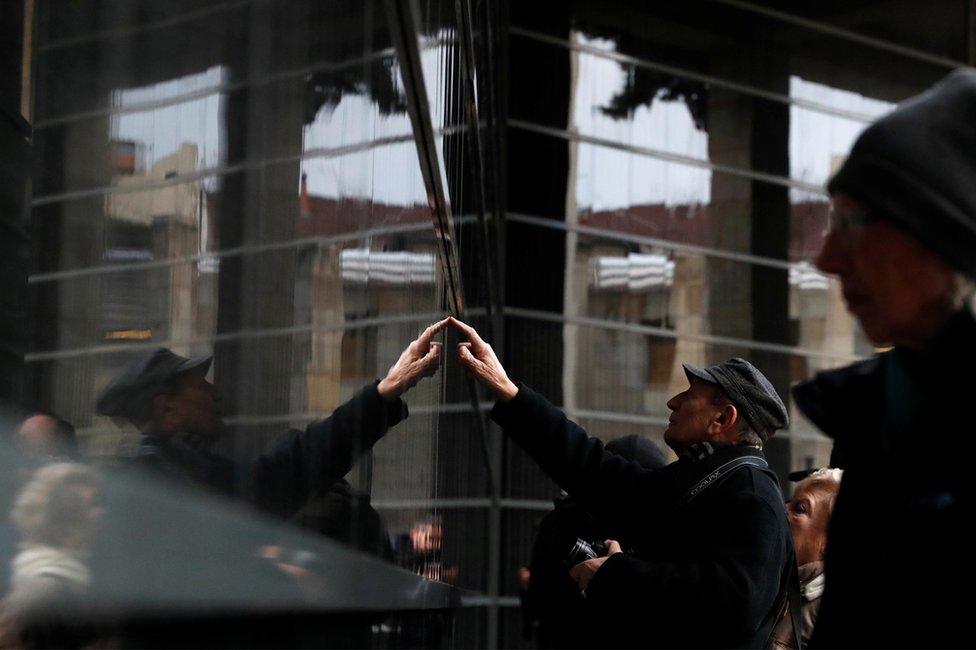
Remembrance events were also held a day earlier, on Sunday, at memorial sites and former camps.
Holocaust survivor Miriam Ziegler visited Auschwitz on Sunday, and recalled being at the camp as a child.
"We were liberated on 27 January 1945," she told Reuters news agency. "I was in a barrack in Birkenau with all young children that Mengele used to use for experiments, and I was very lucky that I was alive.
"They took away most of our friends. Every time they did roll call, they took some of our friends and we never saw them again."
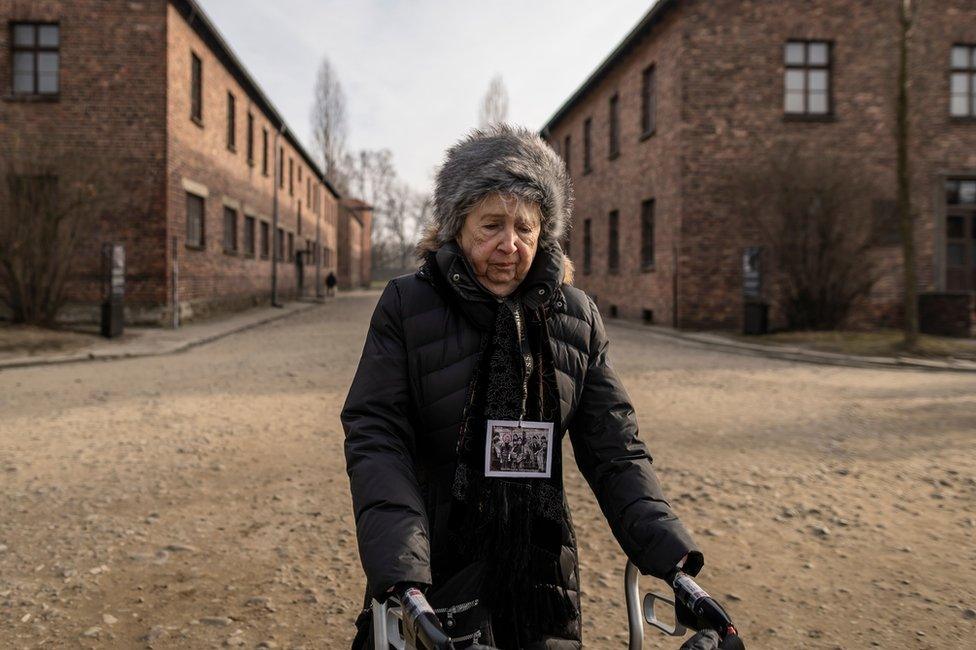
In Thessaloniki, Greece, children laid roses at the Holocaust memorial, in memory of the suffering of generations before them.
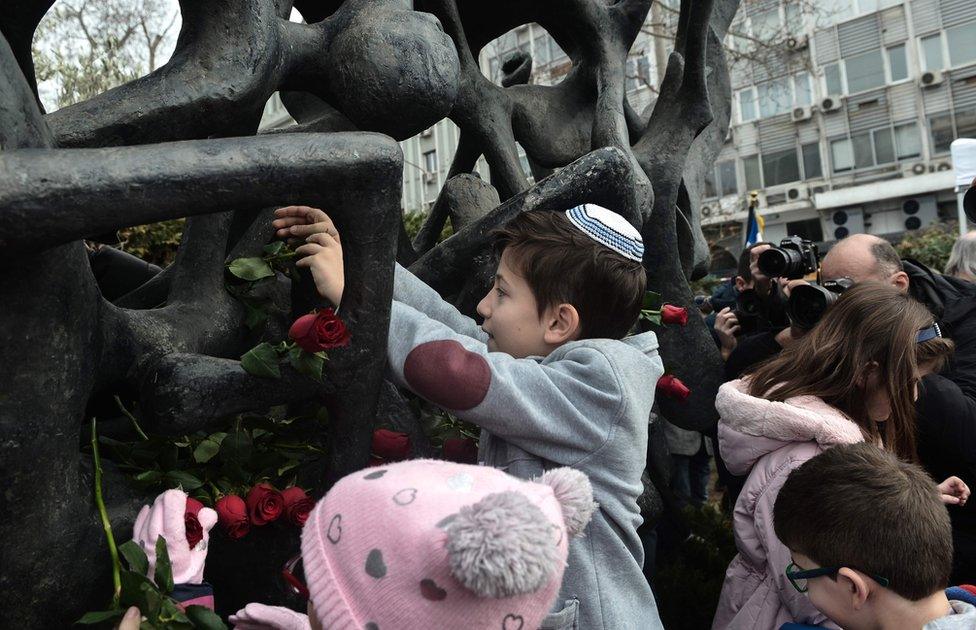
In the UK, the Reverend Canon Dr Christopher Collingwood (below, left) and Joshua Daniels from University of York's Jewish Society lit 600 candles together, and laid them out in the shape of the Star of David on the floor of the Chapter House of York Minster.
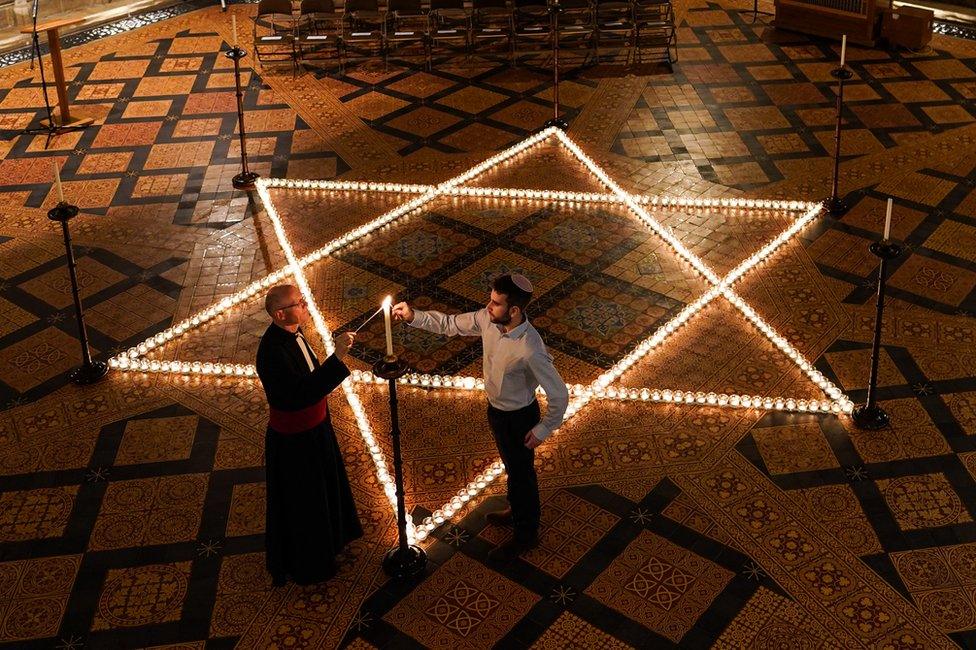
All images copyright.
- Published27 January 2020
